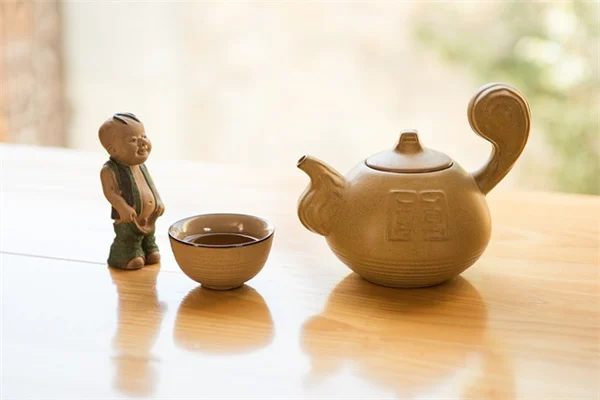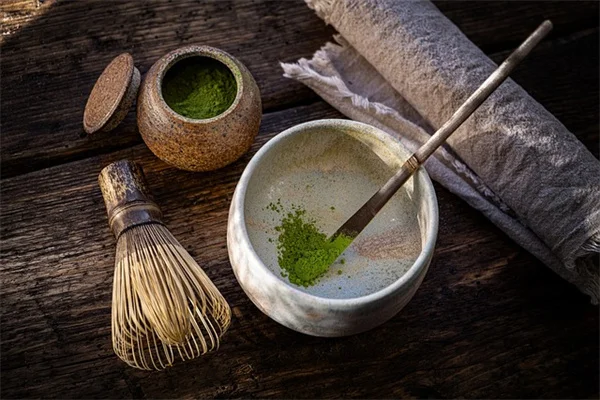Rebel Wilson's Concussion Story: Why You Should Never "Tough It Out"
Advertisement
Should you ignore head injuries and push through the pain? The answer is absolutely not! Rebel Wilson's personal concussion experience proves that toughing it out can do serious damage. After suffering a head injury on set and working through 16-hour days with symptoms, the actress now partners with Abbott's Concussion Awareness Now campaign to spread a crucial message: your brain health isn't negotiable.We've all been there - you bump your head and think I'm fine when you're really not. Rebel's story shows why this mindset needs to change. From her Year of Health transformation to her innovative emotional purge writing technique, she's sharing practical ways to prioritize both mental and physical wellbeing. Whether you're a busy parent, overworked employee, or just someone who's ever brushed off a headache, Rebel's journey offers eye-opening lessons we all need to hear.
E.g. :3D Printed Retinas: Stem Cell Breakthrough for AMD Treatment
- 1、Rebel Wilson's Life-Changing Concussion Experience
- 2、The Health Revolution That Followed
- 3、Concussion Awareness: Why It Matters to You
- 4、Daily Habits for a Healthier Mind and Body
- 5、Final Thoughts From Rebel's Journey
- 6、The Hidden Dangers We Ignore Daily
- 7、Beyond the Physical: Mental Health Connections
- 8、Parenting With Health Awareness
- 9、Technology's Role in Health Monitoring
- 10、Making Health Accessible to All
- 11、FAQs
Rebel Wilson's Life-Changing Concussion Experience
The Slip That Changed Everything
Picture this: It's 6 AM on the set of 'Isn't It Romantic', and Rebel Wilson - yes, the hilarious actress we all love - is walking down a grassy hill. Irony alert: She literally warns the crew "This is slippery!" seconds before taking a tumble that would change her health habits forever.
Here's what went down (pun intended): Rebel hit the back of her head so hard she blacked out for several seconds. The scary part? She still pushed through a 16-hour workday with 500 extras waiting. Can you believe the pressure we put on ourselves to "tough it out"? Turns out, that was a terrible decision - the nausea, headaches, and neck pain lasted for days. This experience became the wake-up call that launched her health transformation and concussion awareness advocacy.
Why Brain Injuries Demand Immediate Attention
Let's play a quick game of True or False:
| Myth | Fact |
|---|---|
| Only athletes need concussion care | EVERYONE needs proper evaluation after head trauma |
| You can "walk off" a concussion | Rest and medical assessment are crucial |
| If you're conscious, you're fine | Symptoms can appear hours or days later |
Rebel's story proves even Hollywood stars fall victim to these dangerous misconceptions. Her partnership with Abbott's Concussion Awareness Now campaign uses brilliant watermelon analogies (your brain's delicate like the fruit's juicy interior) to make this serious topic more approachable.
The Health Revolution That Followed
 Photos provided by pixabay
Photos provided by pixabay
From "Year of Health" to Lifetime Commitment
Remember Rebel's amazing 80-pound weight loss in 2020? That was just part of her complete lifestyle overhaul. Here's the real tea: The concussion made her realize her brain deserved as much care as her body. She stopped drinking alcohol ("Those brain cells aren't coming back, folks!") and started prioritizing mental wellness alongside physical fitness.
What's the secret sauce? Rebel swears by her 12-minute emotional purge writing - basically brain-dumping all her frustrations onto paper each morning. "It's like taking out your mental trash," she jokes. She always ends these sessions listing things she's grateful for, even on days when her coworker is driving her nuts.
Fitness Hacks for Busy People (Especially Moms!)
Now here's where it gets really relatable. As a new mom, Rebel had to get creative with self-care. Her genius solution? Baby-weight workouts - little Royce doubles as a 12-pound dumbbell during squat sessions! "Multitasking at its finest," she laughs.
But let's be real - how many of us would choose bubble baths over ice cream after a long day? Rebel admits this was her toughest habit change. "I used to reward myself with dessert, now I reward myself with not drowning in mom guilt," she quips about finding balance.
Concussion Awareness: Why It Matters to You
The Campaign That's Changing Minds
Did you know most concussion sufferers don't seek medical help? Rebel's campaign tackles this head-on (sorry, last pun!) with their adorable "Melons" family characters. These walking, talking watermelons demonstrate how fragile our brains really are - because let's face it, we're more likely to listen to an animated fruit than a stuffy medical journal.
The message is simple: Hit your head? Get it checked. No exceptions. No excuses. Visit concussionawarenessnow.org to learn the symptoms that could save your life or someone else's.
 Photos provided by pixabay
Photos provided by pixabay
From "Year of Health" to Lifetime Commitment
Here's the million-dollar question: Why do we ignore head injuries we'd never ignore in others? Rebel admits she'd never let a friend "walk off" a concussion, yet she did exactly that to herself. The realization hit harder than her fall - we often treat ourselves worse than we'd treat strangers.
Her advice? Channel your inner protective mom friend. "Would you let your kid go back to soccer practice after smacking their head? Then why are you going back to your desk?" Rebel's journey proves that sometimes, the hardest worker needs to learn how to rest.
Daily Habits for a Healthier Mind and Body
Movement as Medicine
Rebel's fitness philosophy might surprise you: No crazy diets or punishing workouts. Even at her heaviest, she moved six days a week because it made her feel good, not just to lose weight. "Walking is my therapy," she says. "You don't need to be an athlete - just put one foot in front of the other."
The best part? She combines exercise with nature therapy. "Staring at screens all day writing scripts? That's when I know I need to go stare at some trees instead." It's the perfect reminder that health isn't about perfection - it's about small, sustainable choices.
The Power of Perspective
Let's try Rebel's gratitude trick right now. Think of something annoying today - maybe traffic or a rude email. Now counter it with something good: "But I have a job that pays me" or "At least I have a car to sit in traffic with." See? Instant mood boost.
This simple practice helped Rebel shift from "I have to work through pain" to "I deserve to heal." If a Hollywood star battling insane schedules can prioritize self-care, what's our excuse? As Rebel puts it: "Your brain's the CEO of your whole operation - maybe don't treat it like an intern."
Final Thoughts From Rebel's Journey
 Photos provided by pixabay
Photos provided by pixabay
From "Year of Health" to Lifetime Commitment
Rebel's concussion turned out to be the unexpected gift that keeps on giving - not just for her, but for everyone who hears her story. The key takeaways?
1. Your health isn't negotiable - even when work pressures say otherwise
2. Small daily habits create massive long-term change
3. Sometimes the strongest thing you can do is admit you need rest
Your Turn to Take Action
Now that you've heard Rebel's story, here's your challenge: Bookmark concussionawarenessnow.org. Share this article with someone who "walks off" headaches. And next time you bump your head? Actually get it checked - your future self will thank you.
As Rebel would say: "Life's too short to pretend you're fine when you're not." Now if you'll excuse her, she's got a bubble bath waiting - and no, that's not code for secretly eating cake in the tub. Probably.
The Hidden Dangers We Ignore Daily
Our Brain's Silent Suffering
You know what's wild? We'll obsess over a tiny scratch on our phone screen but ignore pounding headaches after hitting our heads. Rebel's story exposes this bizarre double standard we all have. Your brain is literally the command center of your entire existence - yet we treat it like some replaceable part.
Think about your morning routine: brushing teeth (check), washing face (check), checking for potential brain damage after yesterday's head bump? Not so much. We need to start giving our gray matter the same attention we give our skincare routines. After all, you can't exactly slap some retinol on a concussion and call it a day.
The Workplace Pressure Cooker
Here's a question that'll make you squirm: Why do we glorify working through injury? Rebel pushing through a 16-hour day with a concussion isn't unique - it's the norm in our hustle culture. We've created this toxic mindset where taking care of yourself equals weakness.
Let me paint you a picture: Imagine if Rebel had spilled coffee on her designer dress instead of hitting her head. You bet she would've stopped to change! But brain trauma? "Walk it off, champ." This absurd prioritization needs to change, starting with how we talk about health at work.
Beyond the Physical: Mental Health Connections
The Anxiety Aftermath
What doctors don't always tell you? Concussions can trigger anxiety that lingers long after the physical symptoms fade. Rebel's emotional purge writing didn't just help with general stress - it became crucial for managing post-concussion mental health challenges.
Here's something to try: Next time you're feeling off after a minor head bump, track not just headaches but also mood swings, sleep changes, or concentration issues. Your brain's way of saying "Hey, I'm working overtime here!" might show up in unexpected ways.
Sleep's Critical Role in Recovery
Fun fact: Your brain does its best healing while you sleep. Rebel prioritized quality rest during her recovery, but most of us treat sleep like some optional luxury. Newsflash: You wouldn't expect a broken bone to heal properly if you kept moving it, so why expect your brain to recover without proper rest?
Try this tonight: Before bed, imagine your brain cells doing little repair crews like in a Pixar movie. It's not just cute - it's scientifically accurate! Proper sleep allows your brain to clear out toxins and repair damage, concussion or not.
Parenting With Health Awareness
Setting Examples For Little Eyes
Now that Rebel's a mom, her health choices carry extra weight. Kids notice everything - if they see adults ignoring injuries, they'll learn to do the same. Her baby-weight workouts aren't just practical; they're modeling healthy habits in disguise.
Here's a pro tip: Next time you bump your head around kids, vocalize your thought process. "Ouch! I hit my head - I should rest and watch for symptoms." Simple moments like this teach self-care better than any lecture.
The Mom Guilt Antidote
Let's talk about Rebel's brilliant reframe: "I reward myself with not drowning in mom guilt." This mindset shift applies to everyone, parents or not. We've been conditioned to associate self-care with selfishness, when in reality, you can't pour from an empty cup.
Your turn: Replace one "guilty pleasure" this week with a true act of self-care. That bubble bath Rebel loves? Far more restorative than stress-eating cookies while scrolling through emails. Your brain (and your kids, if you have them) will thank you.
Technology's Role in Health Monitoring
Wearables Beyond Step Counting
Modern fitness trackers can do way more than count steps - some now monitor for potential concussion symptoms like irregular heart rhythms after impact. While Rebel relied on good old-fashioned self-awareness, today's tech offers extra safety nets.
Check this out:
| Feature | How It Helps |
|---|---|
| Fall detection | Alerts if impact seems severe |
| Heart rate variability | Flags potential neurological stress |
| Sleep tracking | Monitors recovery quality |
While nothing replaces medical evaluation, these tools can provide valuable data to discuss with your doctor.
The Social Media Influence
Rebel's use of humor in her concussion awareness campaign highlights how we can leverage social platforms for good. Instead of just posting perfect selfies, what if we normalized sharing health struggles too? Her watermelon analogy went viral because it made a serious topic approachable.
Your challenge: Next time you're scrolling, look for health-positive accounts to follow. The algorithm will start serving you more content that actually improves your life rather than just your selfie game.
Making Health Accessible to All
Breaking Down Financial Barriers
Let's get real - not everyone can afford immediate medical care like Rebel could. But here's the good news: Many communities offer free concussion screenings, especially for youth sports. A quick call to your local health department might reveal resources you never knew existed.
Pro tip: If cost is a concern, at minimum document everything after a head injury - symptoms, times, any changes. This creates a paper trail that helps doctors later if symptoms persist or worsen.
Cultural Shifts in Health Perception
Rebel's Australian background brings an interesting perspective - Aussies are famously tough, yet their healthcare system prioritizes prevention. We could learn from this approach. Being health-conscious doesn't make you weak - it makes you smart.
Try this mindset shift: Instead of "I don't have time for this," try "I'm investing in future me." That five-minute concussion check could prevent months of suffering down the road. Future you will high-five present you for being so thoughtful.
E.g. :Why Rebel Wilson Overhauled Her Health Habits After a Concussion
FAQs
Q: How did Rebel Wilson's concussion change her approach to health?
A: Rebel's concussion became a major wake-up call about prioritizing both physical and mental health. Before her injury, she admits she would have pushed through any discomfort to keep working. Now, she understands that your brain deserves the same care as the rest of your body. This realization sparked her 2020 "Year of Health" where she lost 80 pounds through sustainable lifestyle changes. More importantly, she developed daily habits like emotional purge writing and nature walks that support her mental wellbeing. As Rebel puts it, "Your brain's the CEO of your whole operation - maybe don't treat it like an intern." Her experience proves that sometimes health transformations begin with unexpected challenges.
Q: What are the most dangerous myths about concussions?
A: Rebel's campaign tackles several harmful misconceptions head-on. The biggest myth? That you can "walk off" a concussion. Many people believe if they're conscious after hitting their head, they're fine - but symptoms can appear hours or days later. Another dangerous idea is that only athletes need concussion care. Rebel's experience on a movie set proves head injuries can happen to anyone, anywhere. Perhaps the most damaging myth is the pressure to "tough it out," which Rebel admits she fell victim to by working through her symptoms. The truth? Proper rest and medical evaluation are crucial after any head trauma, no matter how minor it seems.
Q: What is the Concussion Awareness Now campaign about?
A: Rebel partnered with Abbott to create this brilliant campaign with one simple message: "If you hit your head, get it checked." Using a family of watermelon characters called the Melons, they show how fragile our brains really are - hard on the outside but soft and vulnerable inside. The campaign makes concussion education accessible through their website (concussionawarenessnow.org) where you can learn symptoms and proper response protocols. What makes it special is how Rebel's personal story adds real-world credibility. As she says, "You'd be kicking yourself if medical intervention could have prevented something serious." This isn't just medical advice - it's life-saving information delivered in an engaging way.
Q: How can busy people prioritize mental health daily?
A: Rebel shares surprisingly simple tricks that fit into packed schedules. Her 12-minute emotional purge writing is perfect for busy mornings - just stream-of-consciousness journaling to "take out the mental trash." She always ends with gratitude statements to reframe perspective. For movement, she swears by walking ("no need to be an athlete") and combines parenting with exercise by using her baby as a weight during squats. Perhaps her best advice? Replace unhealthy rewards with nourishing ones - like choosing bubble baths over late-night desserts. As a new mom, she proves self-care doesn't require hours alone; it's about weaving small, sustainable habits into your existing routine.
Q: What's the most important lesson from Rebel's story?
A: The powerful realization that we often treat ourselves worse than we'd treat others. Rebel admits she'd never let a friend "walk off" a concussion, yet she did exactly that to herself. Her journey teaches us that health isn't about perfection or pushing through pain - it's about giving yourself permission to rest and heal. Whether it's a head injury or daily stress, we all need to channel our inner protective friend. As Rebel says, "Life's too short to pretend you're fine when you're not." Her story isn't just about concussion awareness - it's a wake-up call to stop glorifying overwork and start valuing our wellbeing.


